THE QUEER CITY
Website's ProjectTHE QUEER CITY
Website's Project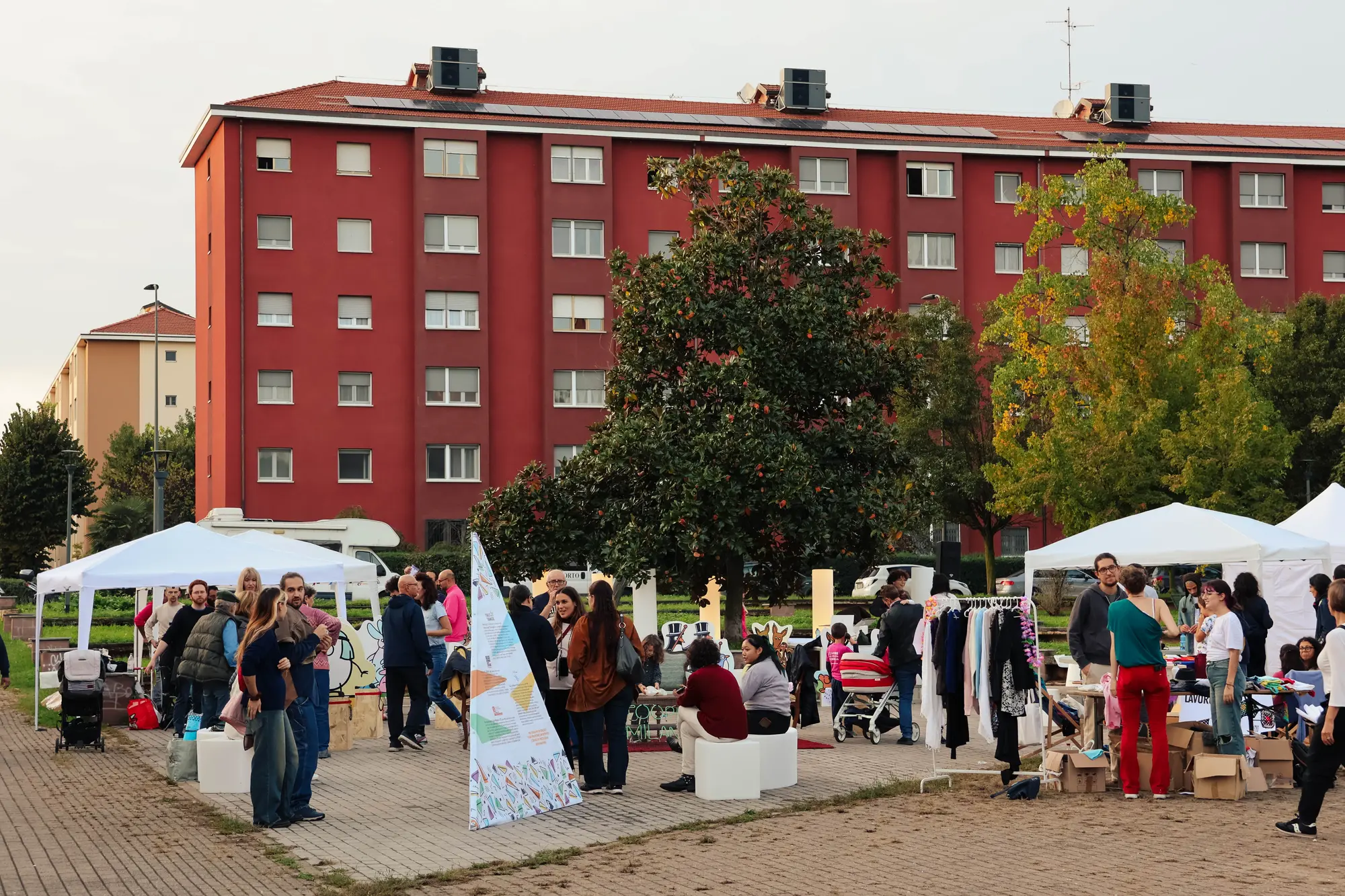
An adequate urban environment should be accessible, diverse, inclusive, safe, and capable of accommodating all the various forms of life inhabiting it, while promoting social cohesion among its residents. The approach to coexistence should therefore be intersectional, acknowledging the layers and intersections among the different facets that compose citizens' identities: class, origin, religion, sexual and gender orientation, and skin color. A queer city, both at its center and its periphery, should truly embody diversity and accessibility, leaving no one behind. This can be achieved particularly through a shift in cultural paradigms, as well as by providing spaces for LGBTQIA+ individuals and associations to express themselves, and by training future designers to create with a more diverse, transfeminist, queer, and inclusive perspective.
The project aims to deeply explore the complex relationship between queerness and public space by constructing a participatory process that actively involves local actors within the LGBTQIA+ community. It connects associations, activists, and public administration in the design and revitalization of various spaces distributed across different municipalities in Milan, amplifying and spreading the values, demands, and initiatives of associations active in the area beyond the central neighborhoods.
The project is developed in partnership with ALA Milano Onlus and Fondazione LILA Milano ETS, supported by funding from Fondazione di Comunità Milano, and backed by a network consisting of Milan’s nine municipalities and eight LGBTQIA+ associations (Agedo, CIG Arcigay Milano, Famiglie Arcobaleno, GayMiN Out, Nina’s Drag Queens – Aparte, PoliHERo, Poliedro, Pride Sport Milano).
THE QUEER CITY originated from the work conducted in the “Temporary and Inclusive Urban Solutions” (TIUS) course at the Politecnico di Milano’s School of Design. Here, partners and the support network participated in a co-design process with students to create nine installations (one for each municipality) in public spaces. During the 2024 and 2025 editions of the course, two of the most promising projects will be selected for further implementation and refinement through a participatory dialogue. The insights and results from the TIUS pilot activities will serve as a starting point to transform these temporary experiments into permanent installations available to citizens.
Expected Outcomes:
SPAZIO Q?!, the first space within this project, was launched on October 20, 2024, in Parco dei Triangoli, Gallaratese, Municipality 8.
The initiative activated the support and partnership network of THE QUEER CITY and was developed in synergy with the area's regeneration efforts promoted by a collaboration pact established in 2021 between the Municipality of Milan, Argót Aps, SpazioTempo Aps, Atelier delle Verdure, ASD Polisportiva Garegnano 1976, and Cooperativa Sociale Nuova Umanità Onlus. This dialogue also involved the neighborhood’s existing associations and active citizens.
Thanks to the funding received, this project brought to life two student designs: "What’s in the Closet?" by Thi Lanh Peruzy and "Q!? Questioning Queerness" by Samuele Cellura. It also activated SPAZIO Q?! with the goal of raising civic awareness on queer and feminist issues beyond traditional "gayborhoods," expanding interventions to less central areas of the city, moving beyond the boundaries of Porta Venezia.
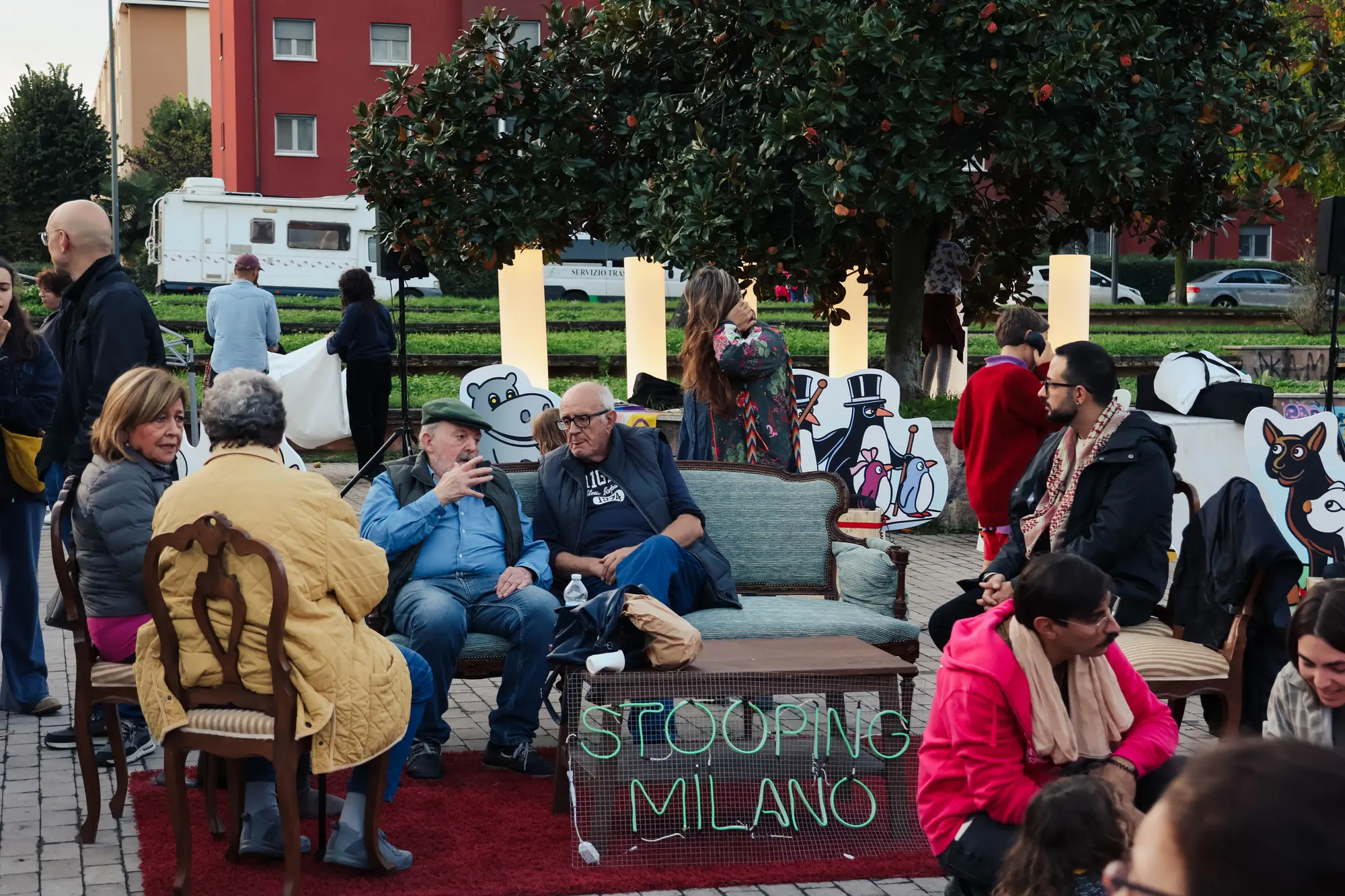
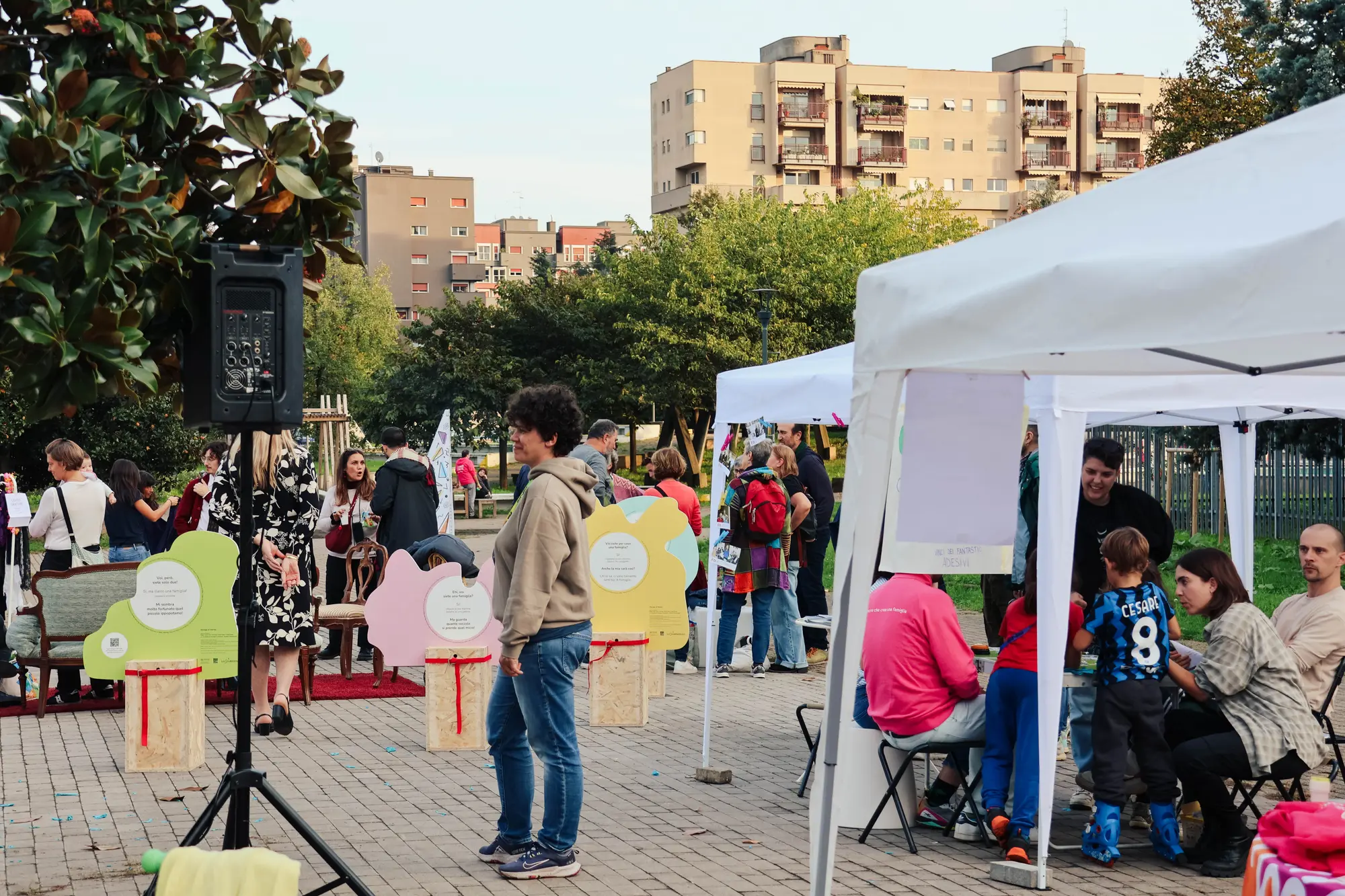
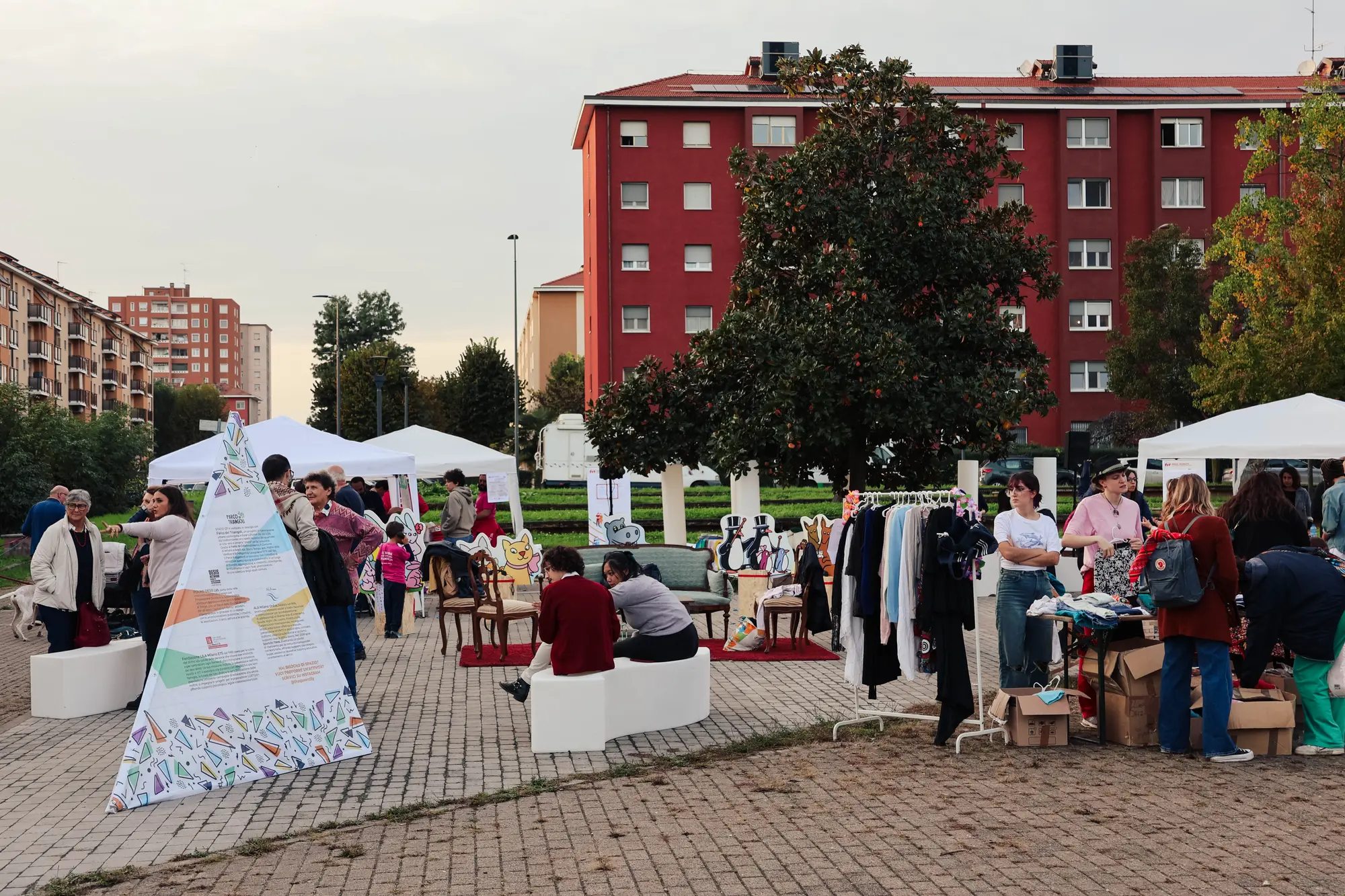
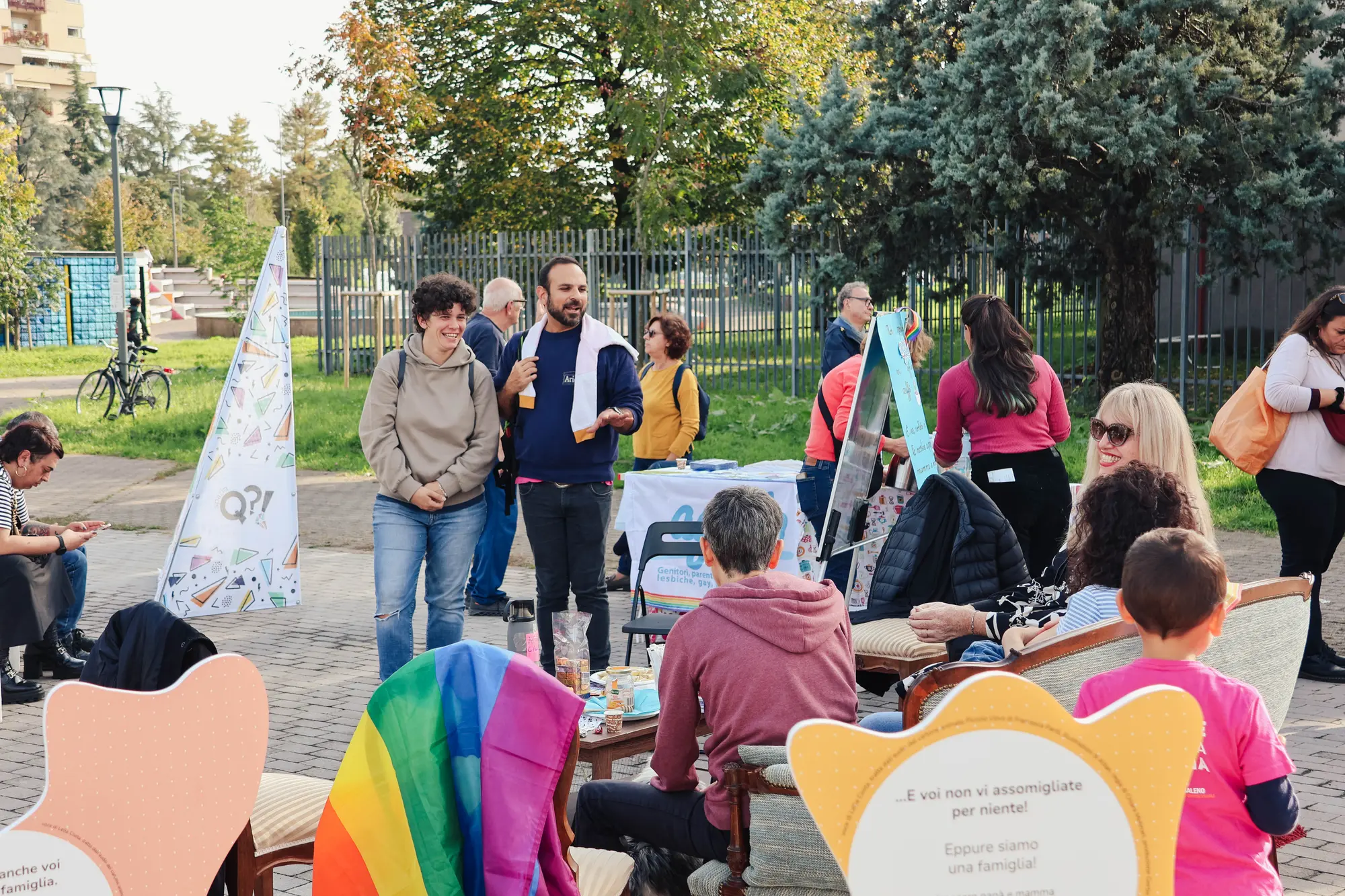
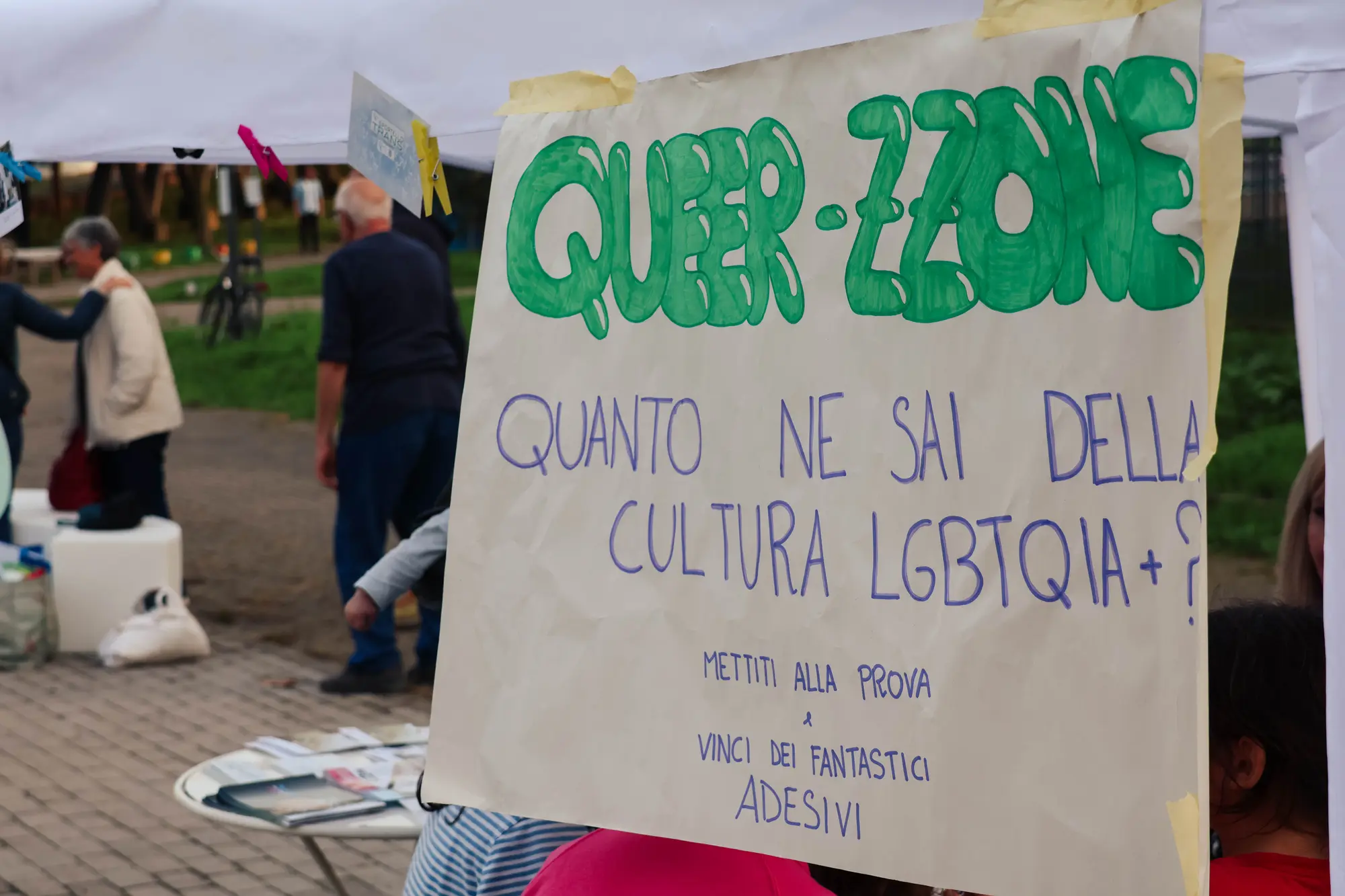
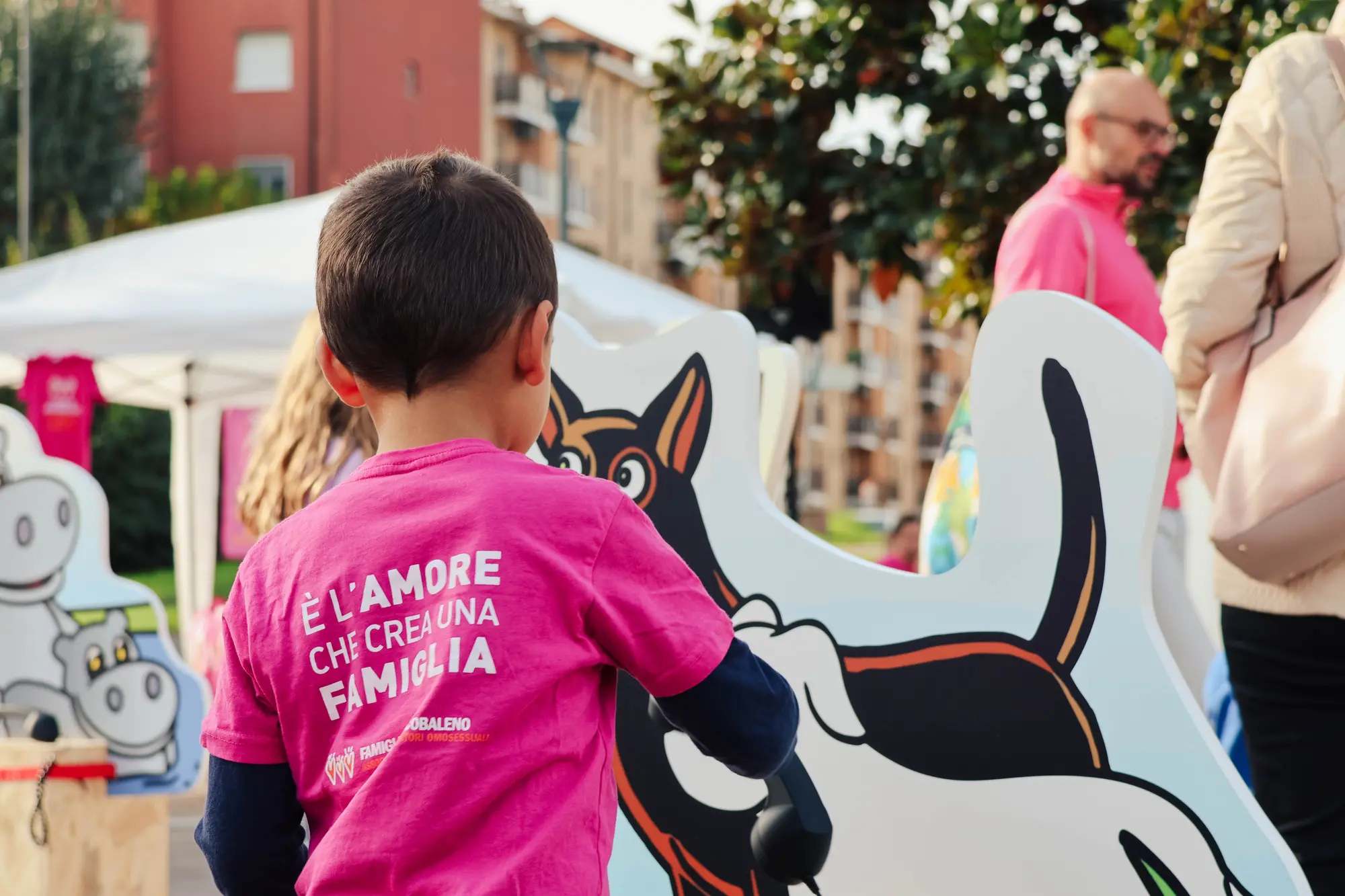
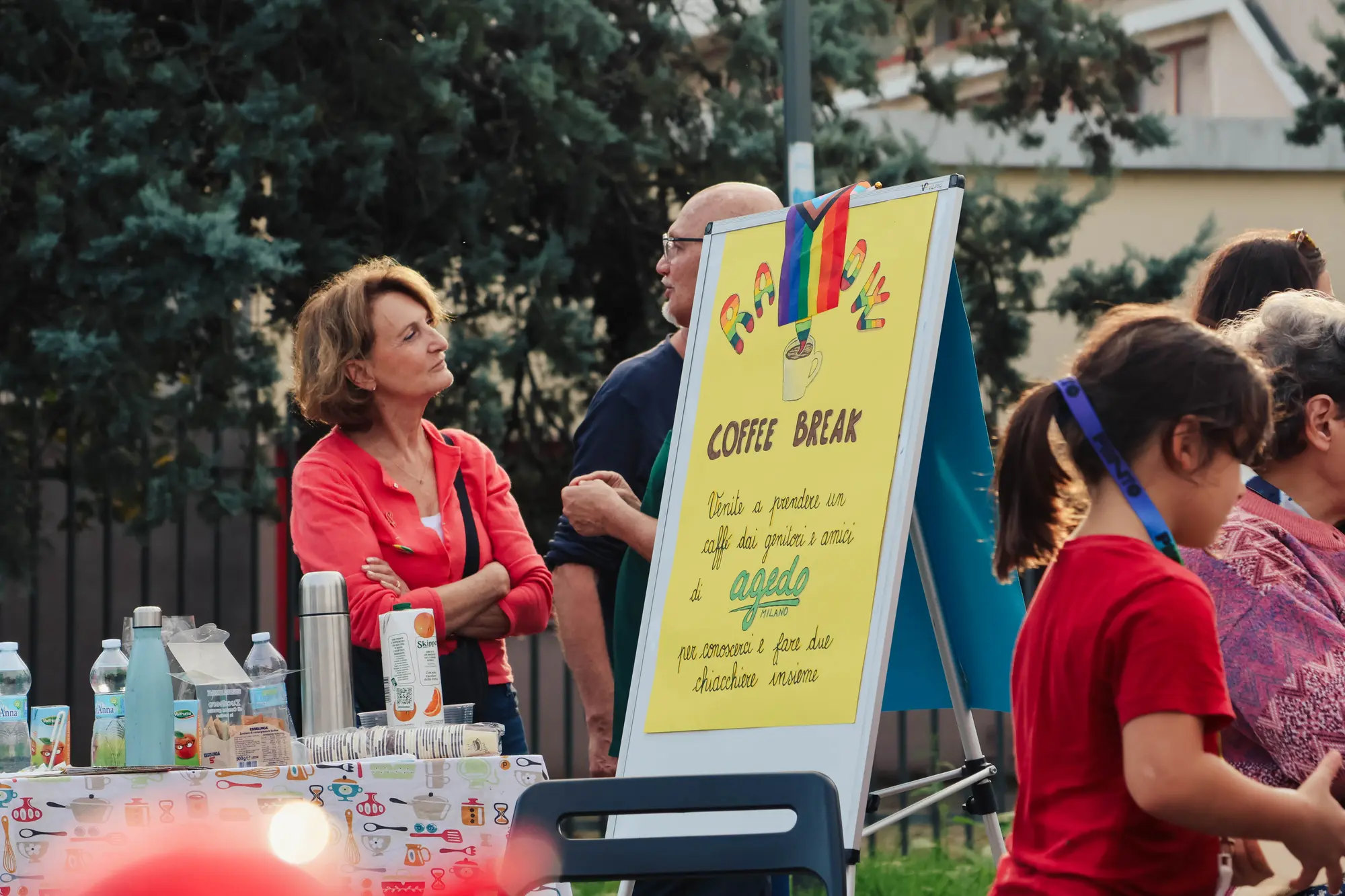
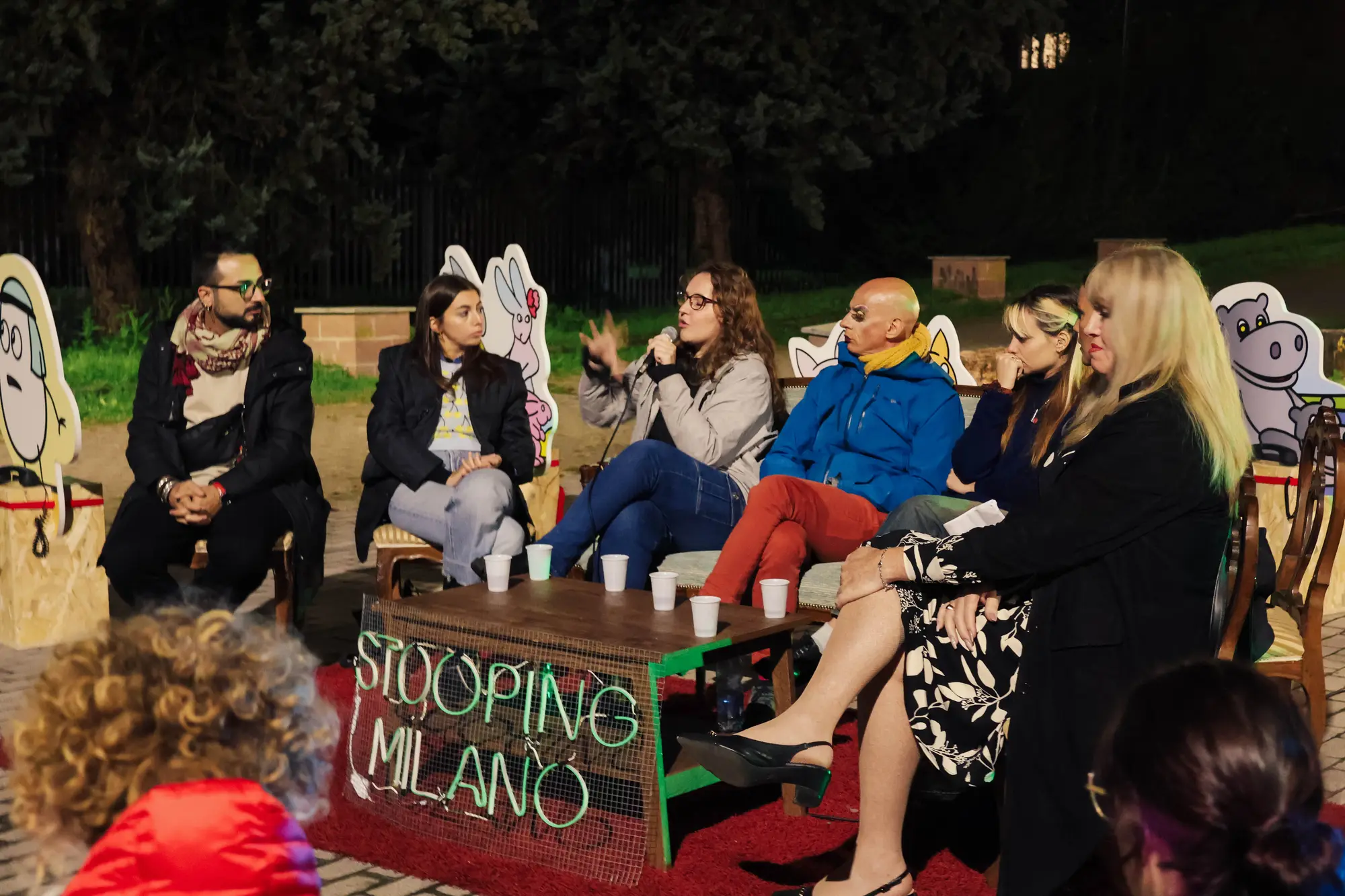
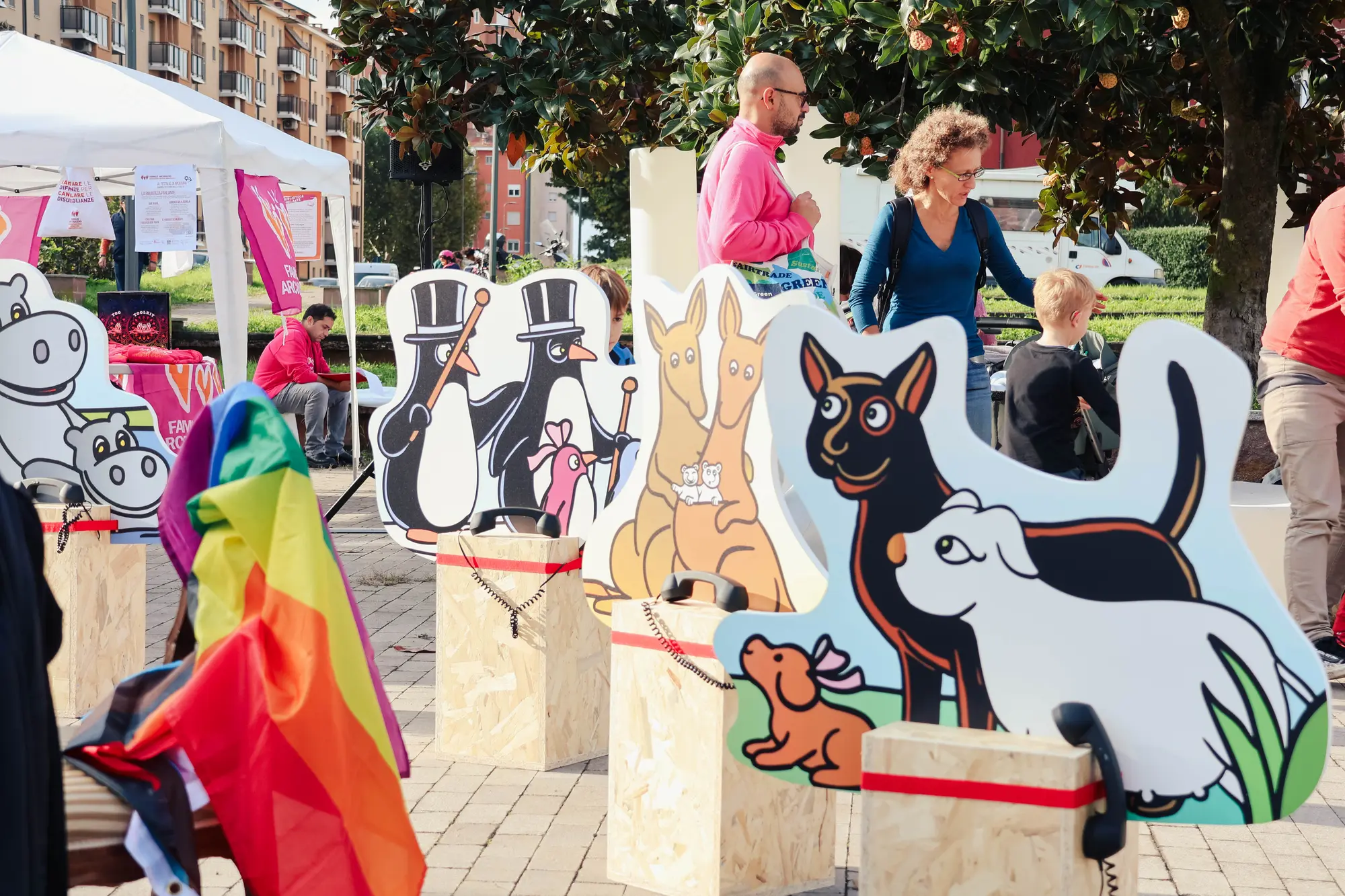
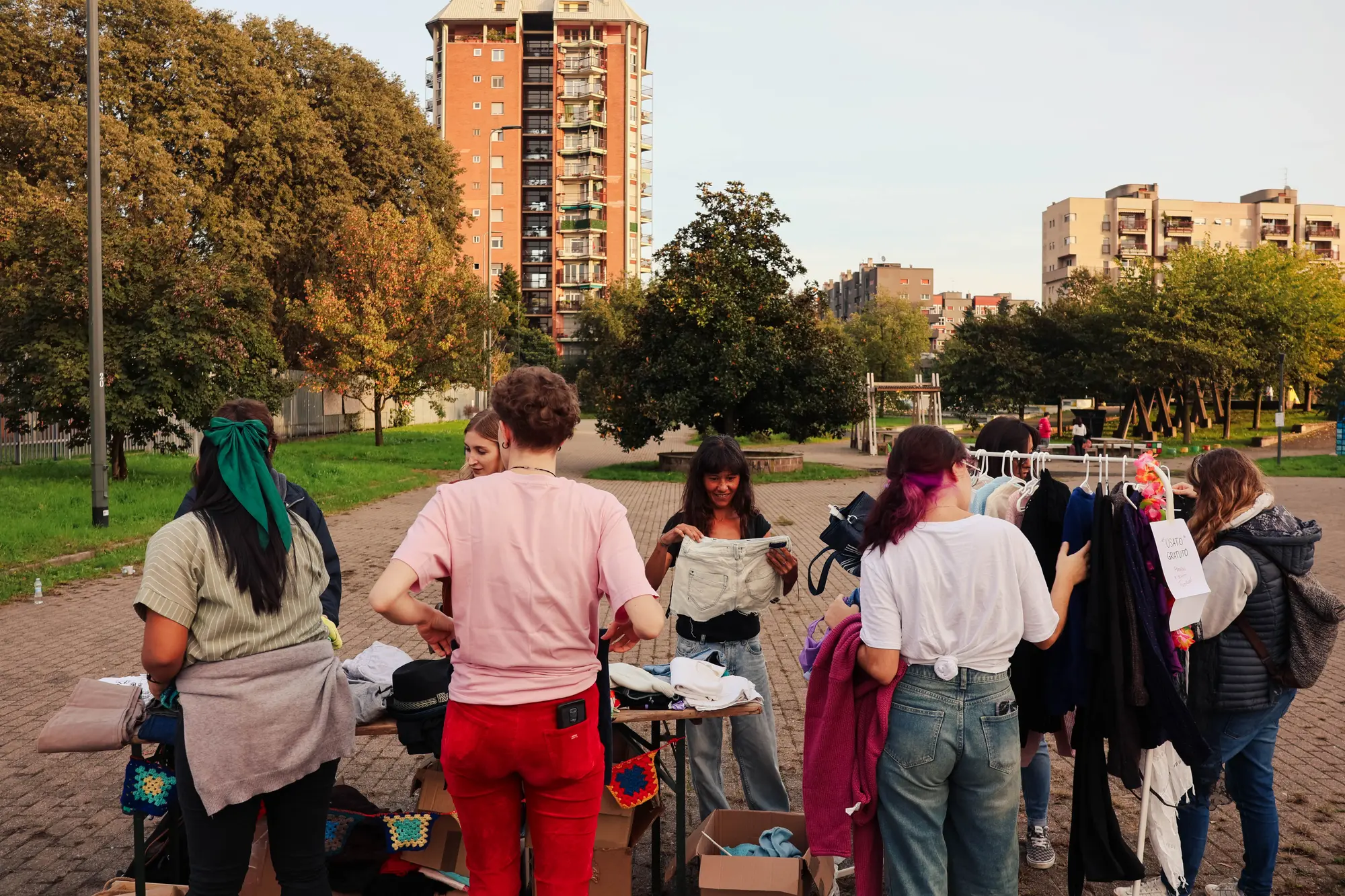
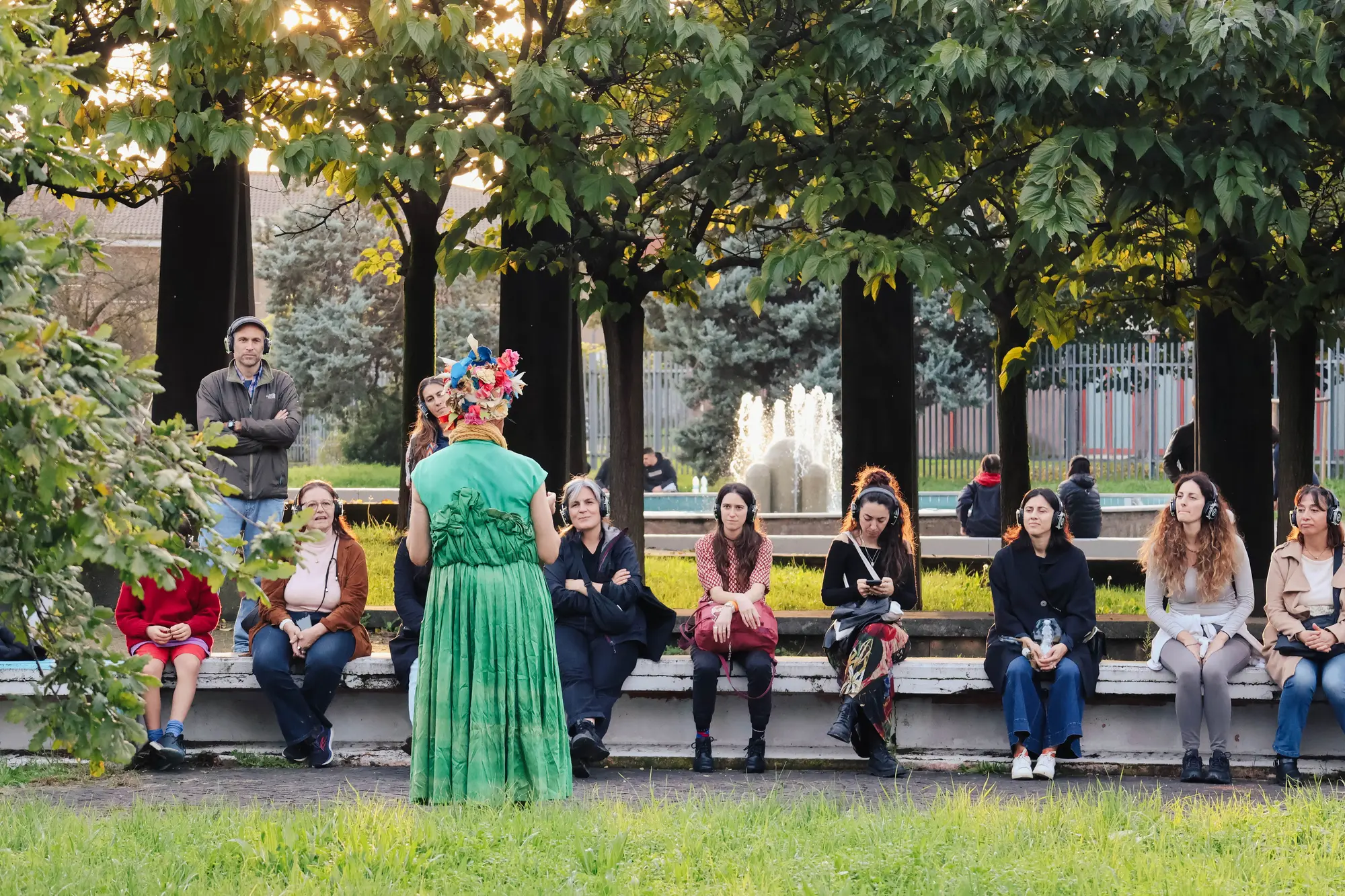
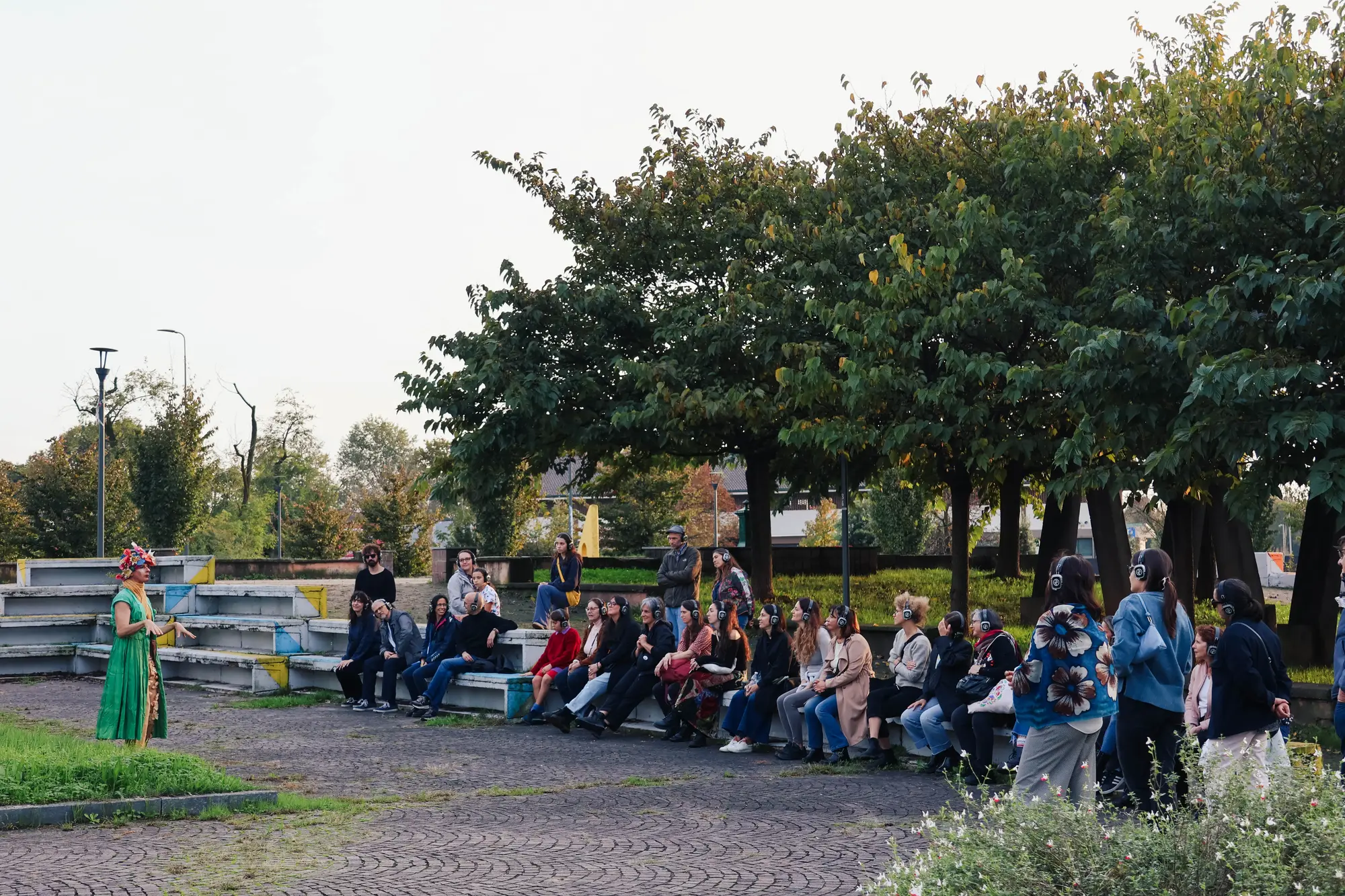
Research groups
POLIMI DESIS LAB
Find out more